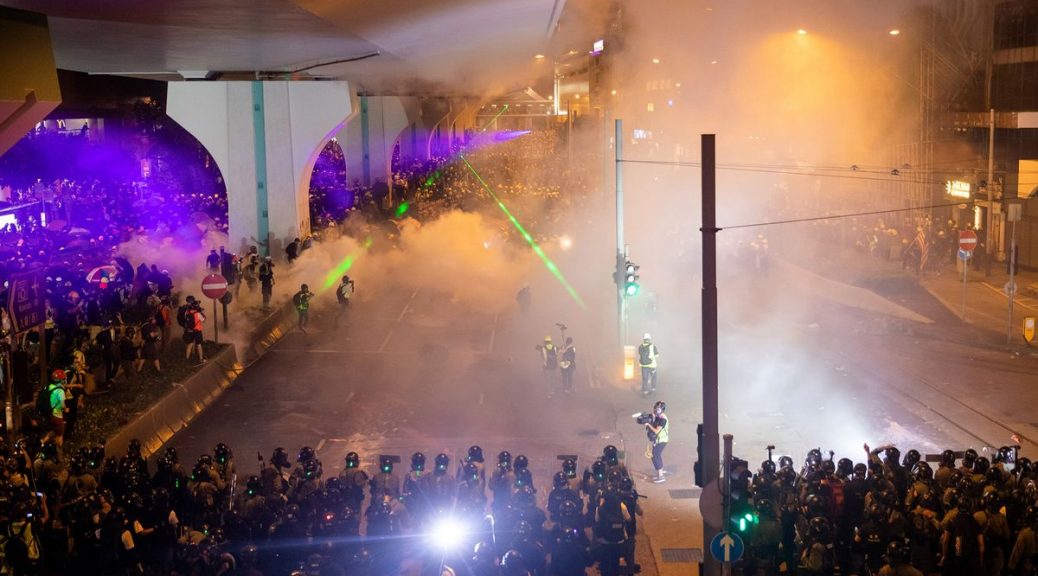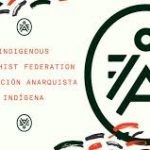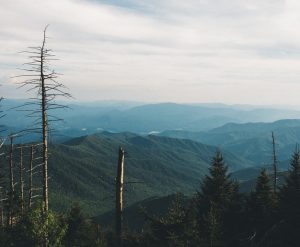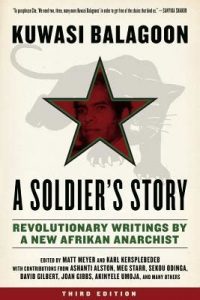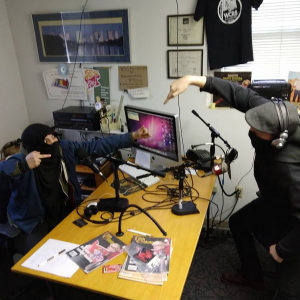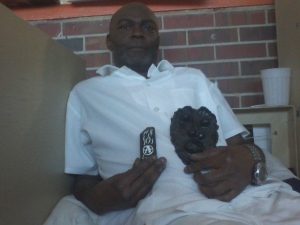Resisting Tyranny in Hong Kong
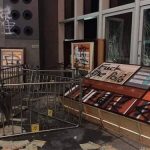
For the hour, we spoke with Ahkok who identifies as a humanitarian, antifascist and musician who grew up in Hong Kong and has participated in protests over the years including the Umbrella Movement and current protests today. We talk about the mindset of the Hong Kong protests, the situation in China, decolonization, racism and more.
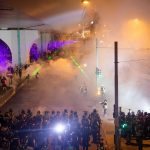
Y’all may have heard that over the last 8 weeks or so, Hong Kong has been rocked by protests to undermine efforts by the government to create an extradition treaty with China. The protests have included barricades, interesting uses of AirDrop, Telegram and whatsapp and other digital platforms to avoid censorship to spread information, street fights against police and attacks from criminal gangs they and the Chinese government hired (the so-called “White Shirts”) and a raucous romp through the empty legislative chambers of governance leaving wreck and ruin behind. The street actions come on the 30th anniversary of the Tienanmen Square Protests of 1989 when student sit-ins demanding democratic political and economic reforms were killed in Beijing and around by the so-called Peoples Liberation Army. Currently, western reporting and word from dissidents inside of China has come about the Re-Education camps such as in Xinjiang where the Chinese government has been interring Uighur Muslims and other ethnic and religious minorities in order to stamp out their religion and socialize them to a more homogeneous Chinese lifestyles, definitely a reason for Hong Kongers to take the streets to keep dissenters there from easy deportation to China.
A couple of interesting ways to keep up on perspectives from the region include ChuangCN, crimethInc, Hong Kong Free Press.
Announcements
BRABC events
If you’re in the Asheville area, on Friday August 2nd from 6:30-8 at Firestorm Books, Blue Ridge Anarchist Black Cross will be showing the documentary “Love And Revolution” about autonomous and anarchist responses to austerity, police violence and resistance to borders and love for the people who cross them in Greece. More on the film at the website lamouretlarevolution.net. Then, on Sunday August 4th from 5-7pm BRABC invites you to it’s monthly political prisoner letter writing. Show up to scrawl a few screeds and meet some nice wingnuts.
Bennu Hannibale Ra-Sun
Supporters of Bennu Hannibal Ra-Sun, recently moved out of solitary confinement after years in the hole for organizing non-violent resistance behind bars, are asking folks to show up in Montgomery, AL to support a court hearing for him at 10AM Montgomery County Courthouse, Courtroom 3C, 251 S Lawrence St. Montgomery, AL 36104 held before Circuit Judge James H. Anderson Fifteenth Judicial Circuit.
Support Workers Coop Efforts
Finally, comrades in Carbondale, IL, have put together a gofundme to help fund a workers cooperative. You can find the site by searching “Carbondale Spring Fat Patties Cooperative”, an effort to re-open a closed burger joint to feed the working class, not some fat cat CEO. More info about organizing efforts in Carbondale can be found at carbondalespring.org.
BAD News: July 2019
This month for the A-Radio Network’s “Angry Voices From Around The World” podcast we feature a shortened segment from our previous episode of TFSR with Perilous Chronicles, as well as A-Radio Berlin with notes on the National Socialist Underground trial in Germany and A-Radio Vienna with call-ups for the August 23-30 International Week of Solidarity with Anarchist Prisoners and support for prison rebel, Andreas Krebs.
. … . ..
This week, we featured “Jab Cross” by Lucy Furr from their recent album, The Jungle, as well as the track “4K Punk Rock” by antifascist post-rock band Remiso’s album, Pleasant With Presentiment.
. … . ..
Transcription
Y’all may have heard that over the last 8 weeks or so, Hong Kong has been rocked by protests to undermine efforts by the government to create an extradition treaty with China. The protests have included barricades, interesting uses of Air-Drop, Telegram and WhatApp and other digital platforms to avoid censorship to spread information, street fights against police and attacks from criminal gangs they and the Chinese government hired (the so-called “White Shirts”) and a raucous romp through the empty legislative chambers of governance leaving wreck and ruin behind. The street actions come on the 30th anniversary of the Tianeman Square Protests of 1989 when student sit-ins demanding democratic political and economic reforms were killed in Beijing and around by the so-called Peoples Liberation Army. Currently, western reporting and word from dissidents inside of China has come about the Re-Education camps such as in Xinjiang where the Chinese government has been interring Uighar Muslims and other ethnic and religious minorities in order to stamp out their religion and socialize them to a more homogeneous Chinese lifestyles, definitely a reason for Hong Kongers to take the streets to keep dissenters there from easy deportation to China.
For the hour, I spoke with Ahkok who identifies as a humanitarian, antifascist and musician who grew up in Hong Kong and has participated in protests over the years including the Umbrella Movement and current protests today. We talk about the mindset of the Hong Kong protests, the situation in China, decolonization, racism and more.
TFSR: Could you introduce yourself to the audience?
Ahkok: Ok, yeah, my name is Ahkok. Originally I’m from Hong Kong, now based in London. I just came back from the Hong Kong massive protests starting from June, lasting until now, really. I’m a musician and I’m also a member of the Hong Kong antifa group. Yeah, that’s basically who I am.
TFSR: Do you identify as an anarchist as well?
Ahkok: Yeah, yeah, I..
TFSR: It’s ok if you don’t…
Ahkok: I, I do, but I like to call myself a humanitarian more, maybe. But sometimes I’ll put on an anarchist hat and, for to, make my ground or something. So, yeah, I would say I’m an anarchist.
TFSR: So,I got ahold of you because there are these ongoing and incredible protests going on for the last 8 weeks…
Ahkok: yeah, mmm
TFSR: …in Hong Kong. Can you talk a little bit about where they came from, recently, and sort of what’s gone on, please?
Ahkok: Yeah, it’s basically… it started from a murder that happened in Taiwan. So, basically there’s a Hong Kong guy, I think he was going out with this Taiwanese girl. That girl got murdered and he flew back to Hong Kong. And there wasn’t any extradition bill between Hong Kong and Taiwan. So, the Hong Kong government was trying to use this as a chance to introduce this extradition bill. But, it’s not for Taiwan, it’s basically trying to bridge this gap from Hong Kong to China. So, yeah, that happened I think in April. And then a lot of different people trying to reject the bill, but the Hong Kong government was really, really determined to pass the bill. So, on the 9th of June there was this massive protest about this extradition bill worldwide, really. I was in Berlin, and I was participating in a gathering in Berlin. There’s a lot of Hong Kong people living there, about a couple of hundred people.
And then it just… went more aggressive along. There was, on the 12th of June, there was a protest outside of the Legislative Council in Hong Kong and the police fired rubber bullets and tear gas. There was a guy, I think he is a reporter, and he got shot in the head, so everyone was sort of watching it and he was in a pool of blood, almost died. I was just really shocked, so I took a flight back to Hong Kong just to be with all of my mates and with the protesters. It just escalated from there and continues right now.
Well, it’s actually a little bit different now because initially we all gathered outside of the Legislative Council, it’s basically like a Parliament in Hong Kong. So there are a lot of protests there. On the first of July some of the protesters actually broke into the Parliament, I think people have seen the videos. Then they trashed the Parliament with lots of graffiti and then came out safely. But the Legislative Council isn’t really operating now so people start to organize different protests in different districts around Hong Kong. Like, for instance, last week it was in Lin Yao and the week before it was in Xiao Tin and so on and so forth. So, it’s basically that there are a lot of smaller protests now rather than just one big, gigantic one happening outside of the Legislative Council.
TFSR: So, is the Legislative Council between sessions where it’s taking an official break that is timed or is it that they are on pause because of the amount of disruption that’s occurring?
Ahkok: They are on pause because of the destruction, yes. Actually, the Chief Executive in Hong Kong, she said the bill is dead but we all think that’s a big lie because there are no options about the bill going dead. You can either pass the bill, approve it, or you withdraw it. But she never said ‘withdraw’, so we think she’s just trying to bide her time and maybe try to reintroduce it later on. So, the protesters keep on protesting her to say ‘withdraw’ but she never used the word. So we just don’t believe her and think the bill is just hanging there.
But, yeah, the Legislative Council is trashed pretty badly and it’ll take a couple of weeks to reinstall. But there will be a somewhat of a break later on anyway. We think that if the bill is coming back, it’ll be in October. But now I think it escalated more than just the extradition bill. It’s more about the independence or the staying away from the evil control from the Chinese government, really.
TFSR: So, I think it’s a good time for people in the audience who may not understand the situation with Hong Kong’s government. SO, basically, for a very long time China was in control, right, and then that was wrested away by the British during the Opium Wars, which gave it back in 1997. Can you talk a bit about that transition and what say the people of Hong Kong had in that and sort of what conflict there would be between the methods of governance that were present or expectations of the ways society ran under British rule versus under Chinese?
Ahkok: Yeah, it’s a very complicated and long story. But, there is this Sino-British joint declaration. Basically, Hong Kong is a British Colony, right? I think we got pretty wealthy because of the Cultural Revolution. There’s a lot of businessmen, maybe from Shanghai or somewhere, who tried to escape the Cultural Revolution so they went to Hong Kong to establish their business.
TFSR: And this was the Maoist attempt to change the cultural landscape in the 1960’s…
Ahkok: Yeah, totally. This was the attempt to try to introduce this really rigid communism around the 1950’s and 60’s. So, the economy was pretty much flourishing under the British colonial government. There was this Sino-British joint declaration saying “we have to hand over in 1997” so the British were handing over Hong Kong back to China. But they had this joint-declaration saying that there will be one country, two systems within this 50 years. So, from 1997 to 2047 we should be benefiting from this one-country-two-systems. Basically, meaning we have our own legislative system, we have our own declarations and so on and so forth, but we’re still a part of China. But as you know since 1997, it’s only been 20 years. Things are just going really really fast.
A lot of people are really scared now. Especially with this extradition bill. Meaning, if the Chinese Govt thought you broke some law in China, they can take you from Hong Kong and try to punish you in China. What this means is that we still have some Free Speech in Hong Kong, we can still criticize the government. We can still criticize the Chinese Communist Party, but if this bill passed then there will be no more freedom of speech whatsoever. They can just take you and put you in a jail in China. So people got really scared. Especially since we’ve been having this Freedom of Speech for a long time, we’ve been saying things about the Chinese government for ages. So, yeah, I think the Hong Kong people are really, really scared about this extradition bill.
The tricky part is that we’ve moved on from one colonial system to another one, I would put it that way. We were a British Colony and we feel like a Chinese Colony right now. So, the younger generation is having a stronger mind on the Hong Kong independence, more than ever, really. In the old days we usually talked about trying influence China as a country so Hong Kong can benefit from it. But now the younger generation is just trying to break apart from China to have their own way, their own system. They don’t really care about the Chinese democratic movement that much anymore.
TFSR: Just to sort of put a pin in what you said about dissent and the suffering at the hands of censorship. I’m reading through this CrimethInc article “Anarchists in the Resistance to Extradition in Hong Kong” that just came our recently. And the person being interviewed talked a bit about booksellers in Hong Kong who were disappeared for selling publications that were banned on the mainland. And activists in Hong Kong who have been detained or deprived of contact while cross the borders with no real possibility for challenging the situations. It seems like this isn’t just based in some conspiracy theory or fear based out of nothing, right?
Ahkok: Yeah, it escalated really fast in the last couple of years. Basically, we have a lot of different bookstores in Hong Kong selling censored books in China, so it actually is quite profitable because a lot of Chinese tourists would like to come and buy some censored books and bring them back to China.
I think the bookstore owner.. there was three of them. Three of them vanished for several months. What happened was this guy, I think he was trying to work with the Chinese government and go back to the store and try to get these phone numbers, so he has these customers information. I think the Chinese government wanted to have this. So, he was told to go back to Hong Kong and take it. But when he went back to Hong Kong, he changed his mind and reported to the mass what happened. So, actually, he’s now in Taiwan and because of this extradition bill he thinks he may not be safe anymore. He went back to Taiwan and thinks that Taiwan is still safe in a way. Don’t know for how long. A lot of people like him feel really that Hong Kong is not a safe place to stay away from the Chinese government anymore.
TFSR: You mentioned a younger generation having a perspective that this was imperialism being imposed after a different form of colonialism and imperialism. Does that mean that young people engaging in this wave of protests against the extradition, are they coming from more of a populist or nativist perspective? Is there nationalism underpinning it? Or is it more of a request of not being, or a push to just not be controlled by a power that is out of their own hands?
Ahkok: Yeah, I think that’s a really good question and very critical. I have to be honest, the younger generation are mostly organized by localists. They are in this spectrum, they are actually quite right wing. The younger generation that is now trying to pick up the identity of what Hong Kong people means, but there are a lot of privileges and discrimination that are behind it. I think, softly speaking, Hong Kong was… they have this elitism in their own sense of identity. Like ‘Hong Kong is much better than China. Hong Kong are a little better species than the Chinese…’. I think that’s the biggest problem about the movement happening it he last couple of years.
There’s a lot of localist leaders in jail now, so these sort of notions that the ‘Hong Kong people are better than the Chinese’ are dying down I think. But at the backbone it’s still the same localist thing. So, what happened was… there’s a lot of fights with the riot police but there are also organized groups to… We have some Chinese buskers, Chinese street performers in Hong Kong and the localists will go and attack them or try to kick them off from the park or something. I think that is not covered in mainstream media at all but that actually makes me really concerned, that sort of backbone of right-wing, localist identity. The tricky part is, how can we address the Hong Kong identity that we aren’t the Chinese and aren’t the British. But at the same time not be discriminating, especially against the Chinese. So, that’s the tricky part.
TFSR: It seems like there’s a possibility, and this is based again on my reading of that article, but that there’s a part of the Hong Kong identity that lies in the identification with refugees who have sought their own life-ways in spite of larger powers trying to control them. And that could be maybe some sort of unifying and non-xenophobic approach. I don’t know if that’s a correct reading on a part of the myth of what it means to be from Hong Kong.
Ahkok: I think, as a local Hong Konger… I spent 30 years in Hong Kong, I have to say that Hong Kong people are fucking racist, man. We had these Vietnamese refugees in the early 90’s. They were treated like rats, man, honestly. They were thrown into concentration camps and having really, really inhumane treatment from the government or the citizens. I think there’s this really powerful colony, the Hong Kong people usually are really.. they prefer the British or the Americans. If your people are black or brown… quite a lot of people from India and Pakistan live in Hong Kong but they are still treated like second-grade citizens still. It’s so difficult to tackle that.
They have this sense of ‘white people are better than the others.’ So, Hong Kong people have been trying to be white for ages. I think that’s one of the most successful colonies, British colonies you can find on earth. So, now, even going to protests, some of them will still wave the British colonial flag, it’s so fucking embarrassing to see. Even some protesters who trashed the parliament they actually took one of these colonial flags with them from inside the parliament. That actually reflects this kind of, really…
TFSR: Reactionary?
Ahkok: … reactionary… Yeah, yeah. I think it’s really naive as well. They thought ‘We have to stand strong and fight off the Chinese colonial power, the Chinese imperial power, so we have to stand aside with the British colony. You know what I mean? It’s like, oh my god can you think of something else. So that’s a pity, really.
TFSR: So, this is an instance that these days, since the end of the cold war, I haven’t heard very much of like how… Hearing from populations resisting a leftist imperialist force. You’ve mentioned that localism and a right wing populism is really frequent and, at least an inherited xenophobia from British colonialism or white supremacy. But, are there many conflictual or resistance movements in Hong Kong that come from an anti-capitalist perspective? And how do they relate to the fact that the Chinese imperial force calls itself ‘Communist’?
Ahkok: Ah, good question. I think one of the key protests was in 2011 with… well we actually had two Occupy Centrals. One was called, really lamely, “Occupy Central with Love and Peace” that was not actually part of the Umbrella Movement but was .. they had this plan with occupying Central with love and peace for a long time but they didn’t know how to execute it because it was a plan from the university elites. But we actually had an Occupy Central in 2011. We spent one year occupying this Hong Kong HSBC bank, the headquarters of this bank. So, we were at the ground-level of this bank for 1 year and then we got kicked out. But that was actually echoing the Occupy movement around the world, so it was basically anti-capitalist and anti-authoritarian. But it wasn’t that popular in Hong Kong, actually.
When it was started, actually, we got a lot of attention but gradually, maybe it was just like 5 or 6 tents left at the occupying space. It is actually very difficult to introduce anti-capitalist ideology in Hong Kong because that is precisely the core identity of Hong Kong people. They think they have the economic power, much better than China. Not so, now, but in the 80’s and 90’s that we were much better than the Chinese because we were rich. That we were much better than the other Asian countries because we were one of the strongest Asian countries in terms of GDP and so on and so forth. So, that makes up a lot of Hong Kong’s identity, and people are proud of it because of the financial power.
Part of this Sino-phobia is because we are losing that privilege and China is growing into the second biggest Imperial power in the world. So, Hong Kong is actually losing this privilege. A lot of middle class, right wing Hong Kong people are actually frightened because we don’t have this privilege now. Rather than saying ‘Freedom of Speech’ or ‘Freedom of whatever’.
** 32 minutes **?
TFSR: If there was room for anti-capitalism or if it was so tainted by the dialogue coming… or the monologue coming from the Chinese Communist Party…
Ahkok: I think in the 1960’s and 70’s there was actually more left-wing, anarchist movements. I think because, precisely, in the 80’s and 90’s the financial power in Hong Kong was soaring. People tried to be a-political in order to not cause any trouble. You know, capitalism needs a really smooth, operating system. So they tried not to disturb it. So they became very a-political in the 80’s and 90’s.
I think since the early 2000’s, we tried to pick up social movements again from the 80’s generation. We, who were born in the 80’s, stated to pick up a lot of different protests from that point in the early 2000’s. So, within these 19 years, we actually went on this crash course. Before that, we went to protest and if we tried to snatch a barricade, we got maimed really from the media (saying that we’re Thugs and shit). But, until now we have gotten really good with tear gas, setting up barricades, trying to stop the riot police. This is actually moving so fast, faster than anyone could imagine.
Nowadays in the really front-line, trying to fight off the riot police, are actually people who are like 16, or 16-21. Really, really young. People like me in their 30’s, we are like the older generation already. We actually try to participate by saving the kids in the front, or just providing the resources, the tools that are needed. It actually changes so fast. I got arrested a lot of times before, but usually I was charged with unlawful assembly. The charge wasn’t really, really serious. I got social service for 80 hours and things like that. But now, it’s escalated so that whenever you participate in this kind of demonstration you participate in a riot. So, it jumps from social service to like 8 years of prison time.
TFSR: Oof!
Ahkok: So, yeah, actually, the risk is really, really high now. But the young generation knows it, but they are really very desperate. This desperate feeling, you can get it from the young generation. If this one-country-two-systems is ending in 2047, that’s actually not.. it’s 20 years later. So, maybe this is.. I think that a lot of people think this is our only chance to stop this from happening. This is the only chance to introduce or try to ask for Hong Kong independence. So, the young generation would risk that 8 years prison time to fight for their future.
TFSR: So you mentioned that capitalism requires a lot of smoth running for it to be able to extract resources and move them up the chain in a population. And this sort of disruption, of course, it will bring a reaction from a capitalist state. Earlier, you mentioned that the two-state-one-nation approach… Can you talk a bit more about the shifting power towards China within the decision making within Hong Kong? For instance, representation of the CCP within whatever supposedly democratic institutions that exist in Hong Kong? And how that might impact things like the passage of this extradition rule or punishments for participating in disruptions and such?
Ahkok: You know, we were pretty proud of Hong Kong not having any corruption at all, it’s not like in China. But I wouldn’t say so now, because there are so many new construction plans coming up. It costs fortunes, billions and billions of dollars, even for just one pedestrian bridge or something. So, we actually know that the Hong Kong gove3rnemnt is answering to the Chinese government and trying to maneuver all the money to the Chinese by these kind of construction works. It costs a fortune but the quality is shit. So, the new train stations, for example, even the construction site is sinking a couple of inches, a couple of inches. But, literally, no one got arrested, they still have a way to get around it. They were able to find some specialists to say ‘it’s safe’, that kind of bullshit, but it costs a fortune and things aren’t safe anymore in Hong Kong.
I think a lot of people in Hong Kong are very sensitive to this kind of money investments. So, that makes a lot of people angry in the society in general.
We know this Chinese Liaison Office in Hong Kong is actually behind almost everything. The Hong Kong government is no longer answering ot the Hong Kong people anymore, it is directly answering to Beijing, and the Liaison Office is actually more powerful than the Hong Kong government.
So, what we saw with the thugs attacking people randomly in the train station last week. A lot of evidence shows that they were actually hired by the Liaison Office. That’s why the Hong Kong police were working so explicitly with them. Because, it came from the highest order of the Liaison Office, so they weren’t interfering when the thugs were attacking. There were no police whatsoever for like 40 minutes and the thugs were just attacking people with pipes and sticks and whatever, randomly. It’s actually state-sponsored terrorism happening in Hong Kong. It was happening in the street called Yuen Long, so a lot of protesters went back to Yuen Long yesterday, Saturday, right. But, the riot police came and they actually… last week we were beaten up by the terrorists and this week we were beaten up by the riot police. Actually, it’s the same, but they’re just dressing different coats really. But they all isolated this Liaison Office. It’s actually an open secret, we know that this government in Hong Kong has this kind of attitude, shamelessly having so much of this police brutality. Because they aren’t really answering ot the Hong Kong people anymore, they are actually working for the Beijing government.
TFSR: So, these thugs that you mentioned, for people who may not have seen the video. There was a video shared online that showed this so-called ‘White Shirt Gang’, a bunch of men in their teens and 20’s, rather large, wearing white t-shirts and attacking protesters in public transit stations. And this isn’t, I mean, but it may be getting worse but this isn’t a new thing, right? In 2014 during the Umbrella Movement, there were also noted cases of Triads or thugs being hired or working with the police to undermine the occupy encampments and beat up protesters, right?
Ahkok: Yeah, it’s not new, but the scale is quite different. It’s not so explicit now. The police just don’t give a shit. They would go and talk to the gangsters saying “Yeah, well done.” Something like that we can see on the videos. I think, back then in 2014, they were still pretty shy to show that the police were working with the thugs. But now, they just don’t care and just admit it. When people were under attack, when people tried to go to the police station to report, they actually closed the police stations. If you call *999, it’s like calling 911 in the States, they actually hang up. If you say, ‘the thugs are attacking’, they’ll hang up or just say ‘if you think it’s not safe, just don’t go out on the street’ and hang up. So, it’s really explicit now, they’re actually the same. **chuckle**. Yeah.
I’m not saying that the police were a fine unit before, we’re not that naive, but this kind of explicitly working together in front of cameras is quite new. I think in 2014, thugs were trying to blend in with the protesters. Their mission was to make the protesters look dirty on the media by throwing things at the police or something like that. Or trying to harass the protesters to make the occupying area less safe. But the mission now is actually quite different. They actually go out and terrorize people. I mean, they aren’t attacking protesters, they are attacking pedestrians, they are attacking random people taking the train.
Yah, I think the scale is actually quite different. I would say that now it’s like corporate terrorism, it’s actually like state-sponsored terrorism. And before it was actually just a little bit different.
TFSR: I think that the US doesn’t have a very proper understanding of the term ‘terrorist’. Recently there was some legislation that was pushed by a few senators, including Ted Cruz (who’s very far right wing), to accuse antifascists or ‘antifa’ being terrorists. When in fact over the last 5 years how many, like 100, people have been killed by right-wing extremists. But, whatever. But to imply, to actually impose terror and make it so that people don’t want to go outside would be an example of terrorism, right?
Ahkok: Yeah, yeah. Yeah, it’s actually a very different kind of context in the States, I think. But, yeah. Maybe it’s not a really good term to use, ‘terrorism’, but the thugs in Hong Kong… I think we have to go back to the history of how these thugs happen to be really snobbish in the first place. Actually, they claim to be the indigenous inhabitants of Hong Kong because their ancestors actually helped by fighting the colonial government. With plows and stuff like that. So, the colonial government tried to say to them, ‘You and your off-springs will have the right to claim the lands” as a way of making a truce. So, what happened is that all of the males from these indigenous inhabitants will have the rights of the land. You know, in Hong Kong, land is really scarce. We have a lot of different living issues, living in really cramped places. But these ‘indigenous inhabitants’, they have the land, so they become one of the privileged classes in Hong Kong. They actually think they own the place. They actually think they own the territory, so they become their own group of people, the main part of these thugs or the gangs that are operating in these terrorist attacks.
The notion that they came out to beat people randomly, saying that they were trying to protect their land. It’s actually really funny. They actually think that the Black Bloc will come to start trouble. So, their first intention is to punish the Black Blocs. So, I think they are trying to go out and beat people in black shirts, and it just escalated to beating up people no matter what they’re wearing. That’s one of the really strange things happening in Hong Kong.
The gangs that are wearing white, the Black Bloc is actually the protesters. Because within this anti-extradition bill, we dress wholly in black, actually, I think it helps a lot of introduce Black Blocs, really. Starting in 2014, we saw Black Blocs, but never in this scale or therefore this kind of organization. I’m actually really proud of the organized Black Blocs, they’re really really powerful and have gained a lot of momentum in the last few weeks. You have to understand that in 2014 it was really just a few people wearing black clothing and throwing objects at the police. But now we’ve become so strong that we can organize many different resources, help people by having our own medics. Yeah, it’s become a really organized groups. I should write something about these Black Blocs coming together in this last couple of months. It’s really interesting.
TFSR: Yeah, I think that you mentioned before the difficulty of engaging barricades and other such things. And now, they seem to be really commonly used and somewhat dispersed among the population. Critiques that people may have gotten for resisting the police in the past have sort of gone by the wayside as wider parts of the population have experienced how difficult the situation is and how dangerous it is. I think it is really impressive and a lot of people have also commented on the very intelligent use of buckets of water to stop teargas. Most people try to throw it back and burn their hands. Can you talk about some of the improved tactics and usch that you’ve seen used in the protests?
Ahkok: Yeah, I think it has a lot to do with the punishment, it’s getting really scary. So, when, back maybe like 10 years ago and we would go out protesting and set up barricades, we didn’t even think of covering our faces because the jail-time was so short. But it escalated with the Hong Kong government trying to prosecute people with riot charges, with 6-8 years in prison. So people think seriously about hiding their identity whenever they go out. So, I think that makes it more popular to have Black Blocs go out in Hong Kong.
I think we learned a lot in the 2014 Umbrella Movement by organizing really big occupying spaces, how to move the tools and resources, how to fight the riot police. Yeah, well after that 79 days of occupy8ing movement in Umbrella Movement, a lot of people went home feeling really pessimistic for almost 5 years, actually. But, in these couple of years, actually, we had a lot of time to really chew on what happened in 2014 and let it sink in. So, when we went back out ot protest in 2019 we came back really strong and really prepared. I think, especially the really young generations don’t have the…
I would say that when we went out to protest maybe 10, 20 years ago, a lot of mainstream politicians were afraid to look dirty on mainstream media. They also calculated how we were actually represented by the media, ‘are we doing things right? Are we looking good?’ Because we thought images would mobilize people to join in.
But, nowadays the younger generation doesn’t give a shit. I mean, they don’t really care about if they try to hit the riot police, if it looks bad on the news. They don’t really care. So, I think from representation to being present in the riot is really different now. So, the younger generation participates and they actually are present in that and don’t really think about representation in the media at all.
And one of the reasons that we have escalated into this kind of mobilization and organization is because a lot of the leaders were arrested **laughs**, they’re actually in jail. I shouldn’t laugh about it, they’re having really hard jail time, but this time we don’t have leaders or main-stages telling what people should do or what people shouldn’t do. So, I think we actually benefited from all of those mainstream political leaders being arrested. So, people have literally no leaders telling them what to do. And now they mobilize with Telegram, or co-location social media… We actually have this main, massive discussion board called Ling-dung, so basically they’ll go online and discuss strategies, what to do and what not to do. Or how to coexist with different knid of risks and tasks. I think that’s the main difference, thinking about it, we don’t have one idealized leader trying to steer away the movement. So things are just born naturally. Some people, maybe they would like to take more risks, to do more things, or some people want to participate in some really peaceful demonstration and go home when things are getting dirty. But they can still work with the Black Bloc. Yeah, I think it’s a new era of protest in Hong Kong.
TFSR: Do you have a sense of how, as trust and this sort of knowledge gets dispersed among more people and decentralized, how people know at what point… I mean, because the Chinese government and the Hong Kong government are watching what’s going on, are listening to what decisions are being made and I’m sure trying to engage and trying to confuse peoples activity and trust with each other. Is there an understanding that at a certain scale we need to devolve our methods of approaching things or have people come to that point yet?
Ahkok: I think that since 2014, there’s a lot of, we call them ‘Ghosts’, undercover cops who would blend in and try to start things or escalate to something more violent, or whatever. They try to make the scripts play out by the movement. I think we still have a lot of those. But we spent a lot of time trying to catch the ghosts in 2014, ‘oh those are undercover cops, those are protesters’ but how do you identify and distinguish them? I think that now people are so aware of it, we always try to remind ourselves ‘don’t spend time catching ghosts, just do your own thing.’ I think this actually works quite well, we don’t really spend time trying to call other people out from the protests ‘they aren’t one of us or they are ghosts or they aren’t protesters’. We don’t actually care now. We do our own stuff, we stay with our own groups of people. But I think that people are getting really smart at the same time. We try to analyze the situation, where to stop and what not to do.
There was this incident on the 1st of July when people trashed the parliament. Actually, four people had this death oath that they wanted to stay inside until the riot police came inside and they wanted to (it was actually suicidal). They actually made this oath to stay inside and fight off the riot police. Before the police came, 100 protesters went into the parliament to pick them up. They said ‘We either leave together or stay together.’ I think this was a very powerful moment of the protests, we actually learned a lot of trust. We’re on the front-line all of the time and we can analyze what would be really harmful fro the protesters, for the Black Blocs and where to actually call it off for the day and come back later on.
It’s just a lot of trial and error, really. But I would say that we’ve been waiting for this moment of leaderless protests for a long time. Because, even in 2014 there were so many idolized leaders that had their mics and said shit, making deals with the police… a lot of people just chanting what they were chanting on the stage. But not anymore. Even some of the politicians, some of the mainstream politicians they know this is not their time. They would just go and try to encourage the protesters to be safe or whatever, Even the lawmakers in Hong Kong know they know shouldn’t take the stage or take the mic to give orders anymore. That’s what makes it really powerful at this time.
TFSR: So, this show sometimes gets heard in China, gets downloads in China and I seriously doubt this will get past the censors.
Ahkok: **laughing**
TFSR: But, in the hopes that someone has a VPN or TOR and can hear this. As you said, things are feeling very dire for people and especially the youth who see a future in 27 years or whatever of China fully taking control of Hong Kong and it losing it’s autonomy and independence, whatever it has now. And it’s also the 30th anniversary of the Tianeman Square massacre, which I know is not allowed to be covered and is censored highly from within China. And I wonder if you have any words for people that are within the mainland about this situation and any hopes that you have… if you have any hopes… for their independence and autonomy. And what you want them to understand about what’s going on in your home.
Ahkok: Yeah, I mean we have a lot of really strong connections with activists in China. We have a lot of respect. Because they are paying a really high price for being dissidents in china. I would say, look, all tyranny collapses. I’ve actually been quite positive. Of course, if the Chinese Communist Party is still around in 2047 Hong Kong will become a part of it and then maybe there’s no escape. But, who knows, maybe the Chinese Community Party might collapse any time soon, man. Part of the reason why there are so many people obedient to the Chinese Communist Party is because of the economic power. There’s only one reason why you obey them, because of money (honestly). Even from Hong Kong. Even some people in Hong Kong are pro-Beijing because they will be made rich.
But I think the economic structure in China is so unstable that it might just collapse at any time. They just make up their numbers. We have been waiting for the bubble to burst for like, for a long time. It might happen any time soon. Once that happens, there will be no more obedience. People will question about the Communist Party in China. Things will be very different.
You know, they have this one… one row one belt, what’s it called, initiative in China. So, in the UN people try to question about… they have these concentration camps, reeducation camps in China now. Actually, 27 countries support these re-education camps in China because they are in the pocket of China. They want to get a piece of it. But I think this time, because of this extradition bill, or maybe we should pay attention to how evil the Chinese government is. Of course, I know a lot of people are trying to go against the imperialism in the States, so they would choose to side with China. I think that is just nonsense, that is just two evil empires. You shouldn’t choose one of them and then think “I’m with the Chinese, so fuck the US government and US imperialism.” No, China is just another, maybe even more evil imperial power, they are just getting stronger and stronger and a lot of countries are supporting them. I think it’s actually a very good time to raise the question “Should we really side with the Chinese?” Look at what they’re doing, there’s no humanity in this system, and that’s why they can grow their economy so fast because there is no legal system, no humanity. Just money. They still use the term ‘Communism’, but they are on the most right side of the spectrum you could imagine on earth.. Let’s think about this. It will collapse pretty soon, man, I have a lot of faith in that.
TFSR: Yeah. I… I don’t necessarily have the faith but I don’t know any better. I can hope for it. And that people can have something better. Definitely not the US coming in but something for themselves.
You kind of addressed one of the questions I had, which was… There are communists, that are statists, who we call Tankies in the west which is a British term. It’s for authoritarian leftists who believe that the opposition to the main capitalist empire, which would be the United States as you said, which would be to support anything that anyone else does that’s in opposition. I appreciate you raising that.
Ahkok: My pleasure, man.
TFSR: So, in terms of that… and I won’t keep you too much longer, I’ve kept you an hour now… But there’s been rumors of the so-called People’s Liberation Army showing up in Hong Kong. Have you heard of that happening or does that seem like a thing that the Chinese government is likely to impose at this point?
Ahkok: Yeah, that’s maybe the worst nightmare of Hong Kong is what happened in Beijing in 1989 happening in Hong Kong. So, there’s always rumors when we do something to upset the Chinese that “The People’s Liberation Army is actually standing by somewhere closer to Hong Kong, maybe in Song Jen (?) or Guangzhou.” And now we have the high speed train, they can just carry all the armies into Hong Kong in no time. But, honestly, to me… I mean… There’s a lot of people saying it won’t happen because the Chinese capitalists still need Hong Kong to make money. If they send in the armies to Hong Kong, the Hong Kong economic structure will collapse and the Chinese government can’t benefit from it. Honestly, I think it might just happen. But, we shouldn’t worry about it. If that’s the trump card, then the CCP has it and they might use it. But we have to mentally be ready for this knkid of reaction to happen in Hong Kong. But I think that we shouldn’t be threatened by this army behind the Chinese.
Or to think that we shouldn’t do this to upset the government more, or we shouldn’t do that. Even going to protest at the Liaison Office, some people are scared because the Liaison Office answers to the Beijing Government. So, when people are throwing paint at the Liaison Office and Chinese officials say ‘We will deploy the army on you if it happens again.’ I mean, yah, just fuck them, just do it then, man. What happened in 1989, it might happen again. Maybe not in Hong Kong, maybe not in Beijing, maybe somewhere else. But we should be mentally prepared if we are still on the road of resistance then we’ll have this obstacle in front of us.
TFSR: Do yo mind if I step back for a moment of clarification for the sake of the audience?
Ahkok: Yeah, yeah.
TFSR: So, when you are talking about the re-education camps that are being engage by the Chinese government, “re-education”, are you talking about the use of concentration camps to break up Ouigar and other Muslim populations within mainland China to socialize them in to, I guess, Han culture or Chinese Communist Party culture?
Ahkok: Well, China doesn’t allow for freedom of religion, right? So, they have been doing a lot of things, bad things, to Muslims for a long time. I think it was the BBC that had this really long coverage about these re-education camps in China. So, basically they throw Muslims from Sun Gong into these concentration camps to make them eat pork or brainwash them into something, until they are not Muslims and are free to go. We call them concentration camps because that’s what they are. I think a lot of people in Hong Kong are worried there might be this kind of concentration camps for Hong Kong Chinese, Hong Kongers. Because it actually might happen, you know? Yeah, yeah, it’s actually really frightening. I think the world should do something about it. We should organize… I don’t know…. We should save them from the tortures happening. We have news of this Muslim poet maybe just died inside the concentration camps. We have this kind of news all of the time. I think the world should really react to those.
TFSR: Boycotting and divesting countries that operate concentration camps such as the United States and China might be a really good idea for people internationally who have a sense of ethics. Or people domestically in those countries if they have that opportunity. Or sabotaging.
Ahkok: Absolutely, man, sabotaging.
TFSR: One thing we haven’t really talked about really… I’d like to touch back on the idea of the youth coming from a kind of right wing, populist perspectve in their resistance to the imposition of rule by the Chinese mainland, by the Chinese Communist Party, which is a very absolutely undemocratic institution by definition. So, with these concepts of Free Speech and Freedom of Entrepreneurship, Freedom of Protest and Religion that exists in Hong Kong, which is very parallel to what I’ve experienced in the United States, is that people point to these beautiful rights that are enshrined in these documents and protected. There’s also incredibly large class divides. A lot of populations, often racialized populations that live at the bottom of society that don’t have the opportunity to partake of that GDP, that fast moving economy that is enriching ‘the country’. So, I wonder, nearing the end of the conversation, do you think that in this push for independence and for thinking outside of.. away from… What do you think it would take or do you see an inkling in the youth in Hong Kong who see that their officials and their business people are willing to make deals with the Chinese Communist Party and state capitalism in the form of Chinese Communism that they can find an autonomous anti-capitalist alternative that doesn’t support the police state authoritarianism of the Chinese or the capitalist creation of feudalism in the current conditions?
Ahkok: Oh, man, that’s tough. I was having this conversation with this guy who’s also participating in the protests. He actually doesn’t know he’s right wing. From this conversation, he said “We’re not welcoming the Chinese in here, we should welcome some people with more, higher standard. Mainly whites, English-speaking groups.” They don’t even know they’re being really right wing. But that’s a part of the problem of being colonized for so long here in Hong Kong. One of the really tough issues is how to decolonize Hong Kong. You know, actually, people still fantasize about the British ruling days. They think it was really good, the financial structure was strong and the legal system was a really smart way of colonizing a place. They haven’t got the tools to criticize about being colonized for so long. Maybe, I would say, we have to educate people, or we have to remind people how bad it actually was when the British ruled Hong Kong. It actually is just really smart. We didn’t have universal suffrage when the British ruled. They just gave a certain kind of freedom: you could criticize the government, you name it. But deep down, we were actually enslaved, we just got really wealthy because of this financial movement benefiting Asia. In the 80’s and 90’s it seemed really good. We should really education people about decolonization means. Also, I think these different places we can look up to or have a different exchange. For example, Catalunya in Spain. I think we have this really common problem around raising our identities while at the same time not being a right wing fascist, saying that people are lower than us.
I’ve been engaging with a lot of Catalan activists. They have a lot of experience to share. Maybe we should have more of this kind of exchange in the future. Actually, there’s a lot of this work to do, but I think now we are more active politically, but we should be educated better with what to do with our deep politics in the future.
TFSR: Well, so how can people abroad.. you mentioned going to a demonstration in Germany at one point… How can people internationally get involved in offering support to resistance to Chinese imposition and the Hong Kong police and how can people educate themselves better on the outside?
Ahkok: There’s a free press in Hong Kong that does a pretty good job in English. If you search Free Press I think you can find a lot of coverage of that. I think there’s a reporter based in Beijing, she’s been writing a lot of articles on Hong Kong and Chinese political issues. Her articles are, I think, in The Guardian, the UK Guardian. So, if you search Guardian and Hong Kong you can find some of her articles as well. So, by knowing the history and the political facts, I think would be quite helpful.
Hong Kong is a really tiny place, really, you know and I’m not really surprised if no one heard of it or thinks it’s a part of Japan. So, knowing the facts is really good.
So, how can foreigners participate? The G20 is happening. Some Hong Kong protesters actually raised a couple of million of dollars to have a lot of different countries front page newspapers saying to address the G20 leaders to help us in Hong Kong. That is so embarrassing, but that actually really reflects how Hong Kong, the majority of Hong Kong protesters think. They are actually trying to ask help from other, strong leaders, or evil organizations.
Well at the same time a lot of my friends in Asia, anarchist groups, actually came to participate in the protests. A lot of comrades from Japan and Taiwan and Korea actually came. We actually have this, really strong anarchist network in east Asia these days. We have meetings probably more than once a year. We always try to talk about how to participate in your countries demonstrations, or other movements. So, we should definitely think about that. Besides knowing the facts and how we can participate when you guys are mobilizing or having different demonstrations and so on and so forth. Yeah, having these kinds of networks actually make us feel better. Maybe it will become something really powerful later on, who knows? Yeah, we actually have this really strong collaboration starting from Fukushima. The No-Nuke campaign in Japan and Taiwan was really active and they were actually working together really well. And of course, in Hong Kong, we have nuclear power plants that have threatened us for a really long time. And China is building quite a lot of new power plants in the near future. So, we actually have a very similar threat. So, from this No-Nuke network we slowly developed this pan-Asian anarchist network. We should definitely think of how to mobilize later on.
TFSR: Is there anything that I didn’t ask about that you think listeners should know about? That I didn’t ask out of ignorance?
Ahkok: Uh, no, actually that was really good. That was some really tough questions. I tried to answer them but it’s not really easy. I tried to prepare for it, though. I think… I haven’t really engaged with media that have been asking things that deep before…
TFSR: Well, thank you.
Ahkok: Yeah, I feel like I’m still really stimulated by the questions. Yeah, I can’t think of anything to add ,really.
TFSR: Well, I really appreciate the candor and making this work. I know it’s really late where you are.

